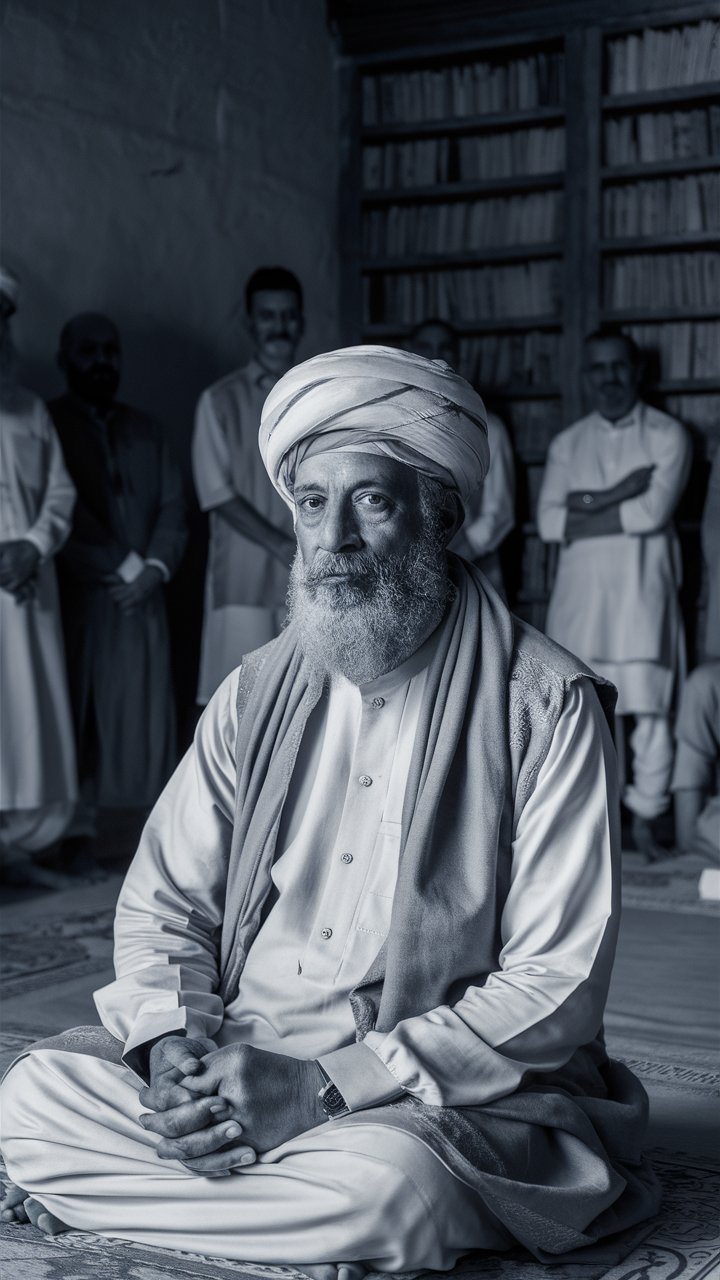Q. No. 3. Keeping in view the socio-politico circumstances of the sub-continent, discuss the role of Sheikh Ahmed Sheikh Ahmed (Mujadid Alf Thani)2024
who revived Islamic Ideology and established Muslim identity in the sub-continent.

Q. No. 3. Keeping in view the socio-politico circumstances of the sub-continent, discuss the role of Sheikh Ahmed Sheikh Ahmed (Mujadid Alf Thani)2024
Introduction:
Sheikh Ahmed Sirhindi, known as Mujadid Alf Thani, was a prominent Islamic scholar and reformer who played a crucial role in reviving Islamic ideology and reinforcing Muslim identity in the subcontinent during the Mughal era. Against the backdrop of socio-political circumstances marked by cultural syncretism and religious pluralism, Sheikh Ahmed emerged as a leading figure advocating for the preservation of Islamic principles and the assertion of Muslim identity. This essay examines the pivotal role of Sheikh Ahmed Sirhindi in shaping Islamic thought and identity in the subcontinent.
Socio-Political Context:
During the Mughal period, the Indian subcontinent witnessed a diverse array of cultural, religious, and philosophical influences, resulting in a syncretic society characterized by coexistence and interaction between different faiths. However, this pluralistic environment also posed challenges to the preservation of Islamic values and the assertion of Muslim identity amidst the dominance of Hindu and Sufi traditions.
Revival of Islamic Ideology:
Sheikh Ahmed Sirhindi emerged as a leading voice in the revival of Islamic ideology, emphasizing the importance of adherence to orthodox Sunni beliefs and practices. He critiqued syncretic interpretations of Islam and sought to purify Islamic teachings from perceived heresies and innovations. Sheikh Ahmed’s writings, particularly his letters and treatises, articulated a staunchly orthodox Sunni worldview, advocating for the strict observance of Islamic law and the rejection of heterodox practices.
Opposition to Syncretism and Sufism:
One of Sheikh Ahmed’s notable contributions was his critique of Sufism and syncretic practices that he viewed as deviating from orthodox Islamic principles. He opposed the doctrine of Wahdat al-Wujud (Unity of Being), popularized by Sufi mystics such as Ibn Arabi, arguing that it undermined the transcendence and sovereignty of God. Sheikh Ahmed’s rejection of Sufi metaphysics and emphasis on legalistic interpretations of Islam reflected his commitment to orthodox Sunni theology.
Defense of Muslim Identity:
Sheikh Ahmed Sirhindi staunchly defended Muslim identity amidst the cultural and religious pluralism of the Mughal era. He advocated for the protection of Muslim rights and interests, particularly in the face of political and social challenges posed by Hindu and syncretic influences. Sheikh Ahmed’s writings and sermons exhorted Muslims to assert their distinct religious identity and resist assimilation into non-Muslim cultural norms and practices.
Impact and Legacy:
Sheikh Ahmed Sirhindi’s teachings and writings exerted a profound influence on Islamic thought and identity in the subcontinent, shaping the trajectory of religious discourse for generations to come. His emphasis on orthodoxy, rejection of syncretism, and defense of Muslim identity resonated with many Muslims who sought to preserve their religious heritage amidst changing socio-political realities. Sheikh Ahmed’s legacy as Mujadid Alf Thani (Reviver of the Second Millennium) endures as a symbol of Islamic revivalism and cultural assertiveness in the subcontinent.
Conclusion:
In conclusion, Sheikh Ahmed Sirhindi, known as Mujadid Alf Thani, played a pivotal role in reviving Islamic ideology and establishing Muslim identity in the subcontinent during the Mughal era. Against the backdrop of cultural syncretism and religious pluralism, Sheikh Ahmed’s advocacy for orthodox Sunni beliefs, critique of syncretic practices, and defense of Muslim identity contributed to shaping the religious and cultural landscape of the region. His legacy as a prominent Islamic scholar and reformer continues to resonate with contemporary discussions on Islamic revivalism and cultural assertiveness in South Asia.
visit:https://scholarshipresort.com/